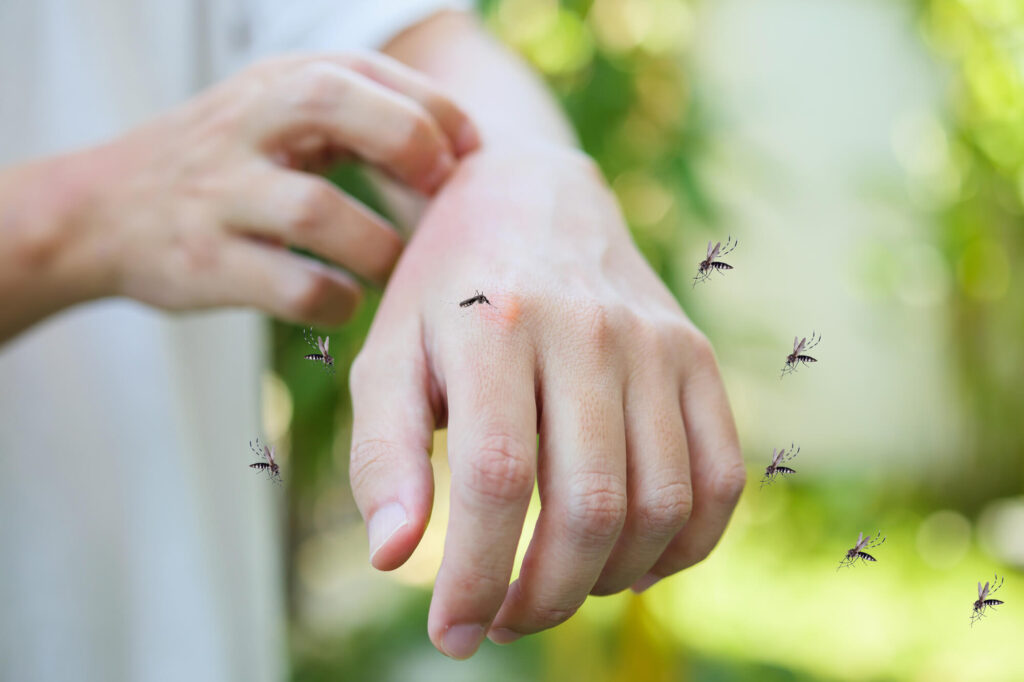What are mosquitoes for? 3 important roles
Mosquitoes are among the most dangerous insect species in the world. Eliminating mosquitoes around homes is also a health necessity in certain regions of the world. But are they useless?
Madness, malaria, chikungunya… There are so many diseases of which mosquitoes are the vectors. It is easy to understand why these insects are among the worst enemies of human civilizations, given the slaughter associated with them. But with a little perspective, we quickly realize that mosquitoes have a role to play in the ecosystem , like all other natural creatures. They actually participate in the food chain between species, as well as in the pollination of plants. Scientists also use them as climate indicators .
1. An essential link in the food chain
Adult mosquitoes, especially females, are an essential food source for many animal species. Their natural predators are insectivorous birds, such as swallows, bats and various types of insects .
Mosquito larvae, which develop in water, are also a treat for fish , frogs and other aquatic animals. At the same time, they grow in stagnant water and feed on microorganisms , decomposing plant debris and other organic materials present in the water.
The fact is that in the absence of this natural predator, certain aquatic insects could proliferate and disrupt the ecosystem. For example, in wetlands, mosquito larvae feed on other aquatic insect larvae, helping to keep populations in balance.
“Mosquitoes are part of a food web, that is to say a group of animals linked to others. Eradicating mosquitoes is not without consequences for birds. »
Jacques Blondel, ecologist and emeritus research director at the CNRS
Thus, large-scale eradication of mosquitoes is the subject of debate among researchers.
Jacques Blondel, for example, is on the side of those who criticize the mosquito control measures taken in the Camargue by the EID Méditerranée (Interdepartmental Agreement for Mosquito Control on the Mediterranean Coast). He believes that the campaign led by this organization has reduced swallow populations .
2. A little pollinator
It is female mosquitoes that bite us. The reason is that they need blood to feed their offspring . But normally, mosquitoes only need sugar to survive. They find it mainly in the nectar of flowers .
When male mosquitoes land on a flower to collect nectar, their bodies come into contact with pollen from the flower's stamens. Then, when they visit another flower of the same species to feed, some of that pollen may be transferred to that flower's pistils . And this is how this insect participates in vegetative multiplication. Moreover, the mosquito is one of the exclusive pollinators of certain plants such as the cocoa tree .
However, mosquitoes are “little pollinators” ! This term comes from the fact that their participation in this phenomenon is insignificant compared to that of bees, for example. Note also that the majority of plants pollinated by these insects are non-consumable plants .
3. An indicator of climate change
Beyond their functions in the ecosystem, mosquitoes also serve as climate indicators. Indeed, their presence in a region can reveal several environmental clues.
Certain types of mosquitoes are sensitive to changes in water and environmental quality. Also, their larvae have specific preferences regarding aquatic habitats. Some species of mosquitoes thrive in clean, well-oxygenated, nutrient-rich water. Others, on the other hand, tolerate pollution and can grow in stagnant or contaminated water. That's why scientists monitor mosquito populations to assess the health of aquatic ecosystems.
Additionally, the diversity of mosquito species in a region may reflect the variety of aquatic habitats and environmental conditions. Healthy, diverse ecosystems are more likely to support a wide variety of mosquito species . Thus, the reduction in species diversity can be an indicator of environmental disturbances or habitat degradation.
Natural tips to repel mosquitoes
There are eco-friendly methods to repel mosquitoes from the places where you live without killing them and harming the environment . However, some of them may not be as effective as chemical repellents. You can then combine several of these techniques for greater efficiency.
Essential oils
Lemongrass essential oil has natural mosquito repellent properties. You can use it by spraying a few drops in a room or diluting a few drops in water to make a spray . The scent of lavender essential oil can also repel mosquitoes. You can place lavender sachets in cabinets or use lavender essential oil in a diffuser.

Repellent plants
You can also grow lemongrass plants in pots inside or outside your home. Basil is also a natural mosquito repellent plant.
Mosquito nets
Installing screens on windows and doors prevents mosquitoes from entering your home while allowing air to circulate. If you live in a risk area, equip your bed with a mosquito net .
Eliminate standing water spots
Mosquitoes lay their eggs in stagnant water. So, make sure to regularly empty flower pots , gutters, and any other containers that may hold stagnant water around your home.
Some tips to avoid being bitten by mosquitoes
Avoid rush hours
Mosquitoes are most active at dusk and dawn. Try to limit your outdoor exposure during these hours if possible.
Mix baking soda with vinegar
You can create a natural repellent by mixing baking soda and vinegar. You will then obtain a paste that you can apply to your skin . Make sure to do a skin sensitivity test beforehand in case you are allergic to it.
Don't wear short clothes
Wear long, light clothing, preferably light-colored . This will reduce your exposure to mosquitoes, especially in hot weather.
Avoid strong perfumes
Mosquitoes are attracted to perfumes and body odors . Wearing strong perfumes and using scented toiletries will attract them to you.

Comments
Post a Comment
If you have any query, Please let us know